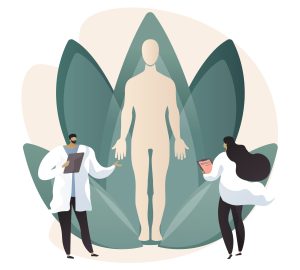[schizophrenia & genetics]
Washington University School of Medicine researchers have found that schizophrenia is not a single disease, but rather a group of eight genetically distinct disorders. Reported online Sept. 15 in The American Journal of Psychiatry, the finding could lead to improved diagnosis and treatment. While analyzing genetic influences on more than 4,000 subjects with schizophrenia, researchers discovered eight distinct gene clusters that contribute to eight different classes of schizophrenia, each with its own set of symptoms. About 80 percent of the risk for schizophrenia is already known to be inherited, but until now, scientists have been unable to identify specific genes. “Genes don’t operate by themselves,” said C. Robert Cloninger, M.D., Ph.D., one of the senior investigators. “They function in concert, much like an orchestra. What we’ve done here after a decade of frustration in the field of psychiatric genetics is identify the way genes interact with each other, how the ‘orchestra’ is either harmonious and leads to health, or disorganized in ways that lead to distinct classes of schizophrenia.” The researchers identified 42 clusters of genetic variations that increase risk for the disease.
[virtual care]
Mercy is putting the finishing touches on its new Mercy Virtual, headquartered at 15740 S. Outer Forty Road in Chesterfield. Expected to open in mid-2015, the offices will serve as the Mercy hub for telehealth professionals to reach patients, regardless of their locations. Mercy Virtual will house nearly 300 physicians, nurses, specialists, researchers and support staff, with care offered 24/7 via audio, video and data connections. “We are even closer to bringing high-quality medical care to thousands of patients regardless of the hour or location,” says Dr. Randy Moore, president of Mercy Virtual. “Time of day, distance and geography will no longer be obstacles in connecting patients and expert care teams.”
[new hope for als]
In findings published Oct. 26 in Nature Neuroscience online, studies suggest that the heart drug digoxin may be adaptable for the treatment of amyotrophic lateral sclerosis (ALS), a progressive, paralyzing disease also known as Lou Gehrig’s disease. It destroys nerve cells that control muscles, leading to loss of mobility and difficulty breathing and swallowing, eventually causing death. “We blocked the enzyme (that causes nerve cell destruction) with digoxin. This had a very strong effect, preventing the death of nerve cells that are normally killed in a cell culture model of ALS,” says senior author Azad Bonni, M.D., Ph.D., the Washington University Edison Professor of Neurobiology and head of the department of anatomy and neurobiology.
[slu, a vaccine leader]
The SLU Center for Vaccine Development, which is funded by the National Institutes of Health, has been instrumental in developing numerous vaccines that protect public health and is currently working to develop a universal vaccine for influenza. The center’s expertise was spotlighted in the July/August issue of Missouri Medicine: The Journal of the Missouri State Medicine Association. “As evidenced by the current Ebola outbreak, there are no other potential world health problems that threaten massive death and illness as much as infectious diseases,” says Dr. John C. Hagan III, the magazine’s editor. Formed at SLU 25 years ago, the center had a hand in creating vaccines against smallpox, potential biological weapons post 9/11 and the FLUMist nasal spray. It also has worked on vaccines for tuberculosis, herpes, hepatitis C, Dengue fever, pneumonia, meningitis and pertussis.








